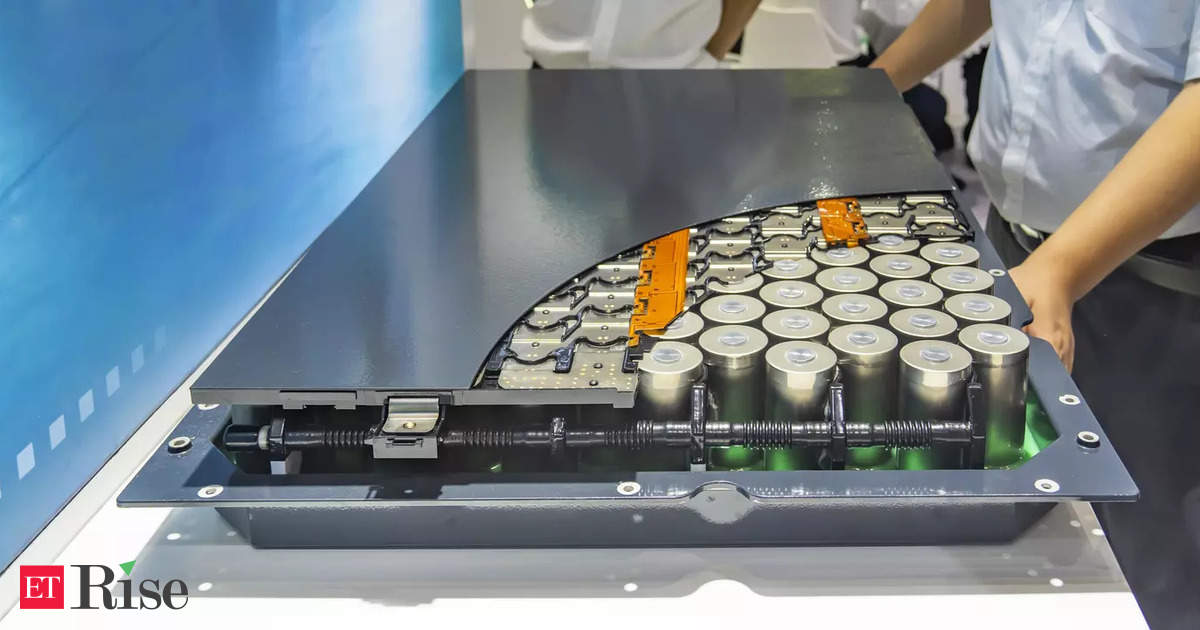In an interaction with ET Online, Ankit Sharma, co-founder and director of the company, says that they prioritise efficient recycling and recovery of valuable materials from batteries at the end of their life. This closed-loop system minimises waste and reduces the environmental impact of the batteries. battery production and elimination. Edited excerpts:
ET: Can you explain the importance of cathode active materials in energy storage solutions for electric vehicles?
Ankit Sharma: Cathodic active materials (CAM) are crucial to the performance and efficiency of Lithium-ion batterieswhich are the backbone of electric vehicles (EVs). CAMs determine key battery characteristics such as energy density, lifespan, and charge/discharge rates. High-quality CAMs ensure that Batteries for electric vehicles They have superior performance, longer range and faster charging times, thus improving the user experience and driving the adoption of electric vehicles.
ET: How does domestic CAM production help India minimise imports of EV batteries?
AS: Domestic CAM production is a key step towards reducing India’s dependence on imported EV batteries. It is critical to foster a more self-reliant EV battery industry. It strengthens energy security, supports local manufacturing, creates employment opportunities and aligns with the national vision of leading in e-mobility and sustainable energy. As the domestic industry evolves and infrastructure develops, the dependence on imports is expected to decline further.
However, this effort alone will not completely eliminate the need for imports until a complete domestic supply chain is established. Currently, more than 90% of battery components are imported. A comprehensive supply chain should include sourcing raw materials for cathodes and anodes, establishing lithium-ion cell manufacturers, and developing battery assembly facilities. India also faces challenges such as a lack of local suppliers of essential manufacturing equipment and a shortage of trained professionals in this specialized field.ET: In a circular economyHow is? Vidyuta commit to Sustainable practices Within the life cycle of the electric vehicle battery?
AS: Vidyuta is deeply committed to sustainable practices within the lifecycle of EV batteries. Through strategic partnerships, we ensure that end-of-life batteries are efficiently recycled and valuable materials are recovered from them. By collaborating with specialist recycling partners, we follow the principles of a circular economy, ensuring that materials are reused, repurposed and recycled wherever possible. This system not only minimises waste, but also significantly reduces the demand for virgin raw materials, thereby decreasing the environmental impact associated with battery production and disposal.
Ankit Sharma, Co-Founder and Director, Vidyuta Materials Pvt. Ltd.
ET: How does Vidyuta collaborate with automotive manufacturers and original equipment manufacturers (OEMs) to integrate CAM into EV battery packs?
AS:
ET: As demand for electric vehicles increases, how is Vidyuta scaling up CAM production to meet the needs of the industry?
AS: We currently have a manufacturing facility in Greater Noida with a daily production capacity of 500 kg. We have completed the acquisition of a plot of land in South India to set up a plant there by the end of 2026. This facility will be developed in phases, with a peak production capacity of 10 GWh planned for 2030. We are investing in advanced manufacturing technologies, expanding our production facilities and optimising the supply chain to ensure that we can deliver high-quality CAM at scale.
ET: What sustainability metrics does Vidyuta follow and what are its long-term goals?
AS: Vidyuta tracks a range of sustainability parameters such as carbon footprint reduction, material recovery rates and energy efficiency in our manufacturing processes. Our long-term goals include achieving a zero-waste manufacturing process, reducing greenhouse gas emissions and increasing the proportion of recycled materials in our products. We are committed to continuously improving our sustainability performance and contributing to a greener and more sustainable future for the energy storage industry.
Disclaimer:
The information contained in this post is for general information purposes only. We make no representations or warranties of any kind, express or implied, about the completeness, accuracy, reliability, suitability or availability with respect to the website or the information, products, services, or related graphics contained on the post for any purpose.
We respect the intellectual property rights of content creators. If you are the owner of any material featured on our website and have concerns about its use, please contact us. We are committed to addressing any copyright issues promptly and will remove any material within 2 days of receiving a request from the rightful owner.

